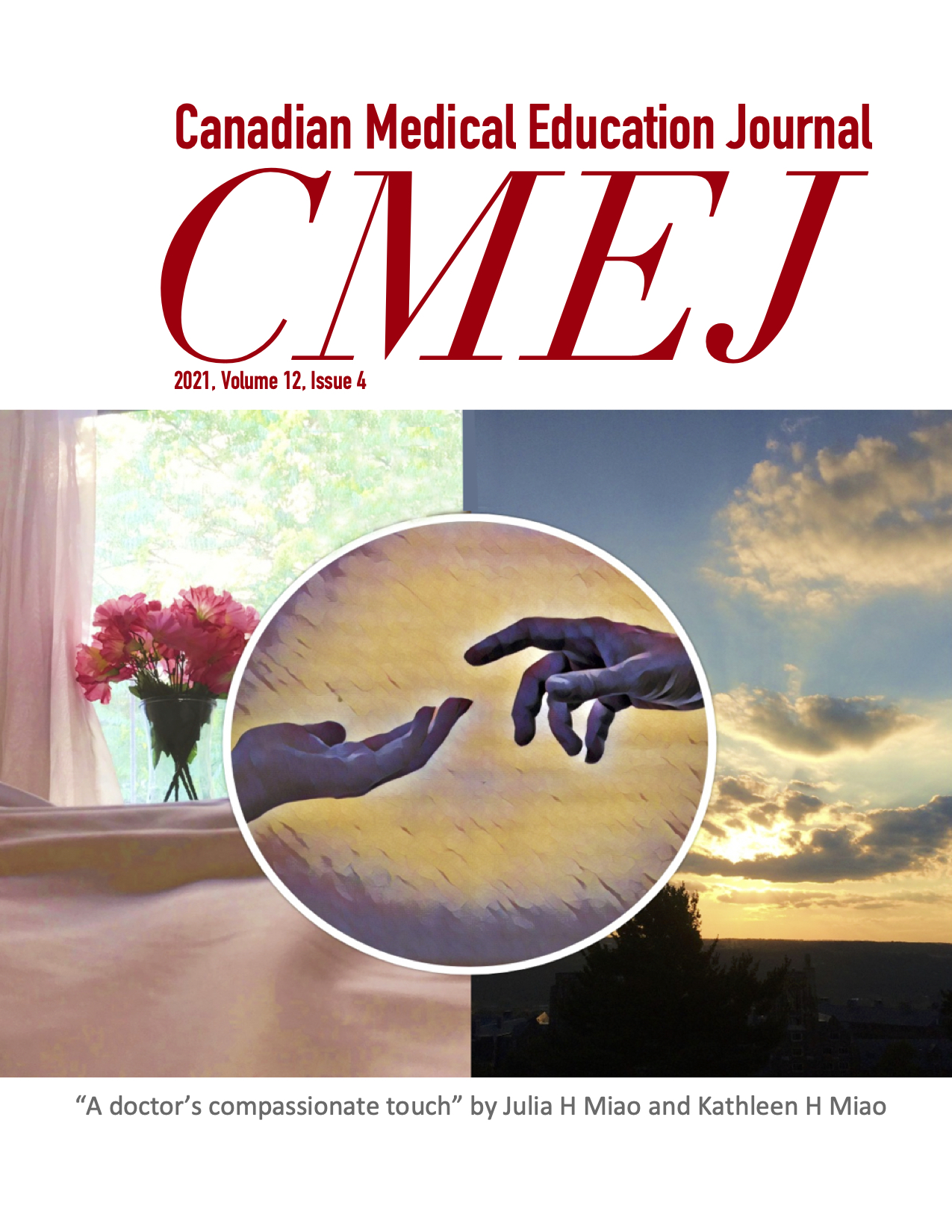Examining the accuracy of residents’ self-assessments and faculty assessment behaviours in anesthesiology
DOI:
https://doi.org/10.36834/cmej.70697Abstract
Background: Residents’ accurate self-assessment and clinical judgment are essential for optimizing their clinical skills development. Evidence from the medical literature suggests that residents generally do poorly at self-assessing their performance, often due to factors relating to learners’ personal backgrounds, cultures, the specific contexts of the learning environment and rater bias or inaccuracies. We evaluated the accuracy of anesthesiology residents’ self-assessed Global Entrustment scores and determined whether differences between faculty and resident scores varied by resident seniority, faculty leniency, and/or year of assessment.
Methods: We employed variance components modeling techniques and analyzed 329 pairs of faculty and self-assessed entrustment scores among 43 faculty assessors and 15 residents. Using faculty scores as the gold standard, we compared faculty scores with residents’ scores (xi(faculty)–xi(resident)), and determined residents’ accuracy, including over- and under-confidence.
Results: The results indicate that residents were respectively over- and under-confident in 10.9% and 54.4% of the assessments but more consistent in their individual self-assessments (rho = 0.70) than faculty assessors. Faculty scores were significantly higher (α = 0.396; z = 4.39; p < 0.001) than residents’ self-assessed scores. Being a lenient/dovish (β = 0.121, z = 3.16, p < 0.01) and a neutral (β = 0.137, z = 3.57, p < 0.001) faculty assessor predicted a higher likelihood of resident under-confidence. Senior residents were significantly less likely to be under-confident compared to junior residents (β = -0.182, z =-2.45, p < 0.05). The accuracy of self-assessments did not significantly vary during the two years of the study period.
Conclusions: The majority of residents’ self-assessments were inaccurate. Our findings may help identify the sources of such inaccuracies.
Downloads
Published
Versions
- 2021-09-15 (2)
- 2021-04-12 (1)
Issue
Section
License
Copyright (c) 2021 Melinda Fleming, Danika Vautour, Michael McMullen, Nicholas Cofie, Nancy Dalgarno, Rachel Phelan, Glenio Mizubuti

This work is licensed under a Creative Commons Attribution-NonCommercial-NoDerivatives 4.0 International License.
Submission of an original manuscript to the Canadian Medical Education Journal will be taken to mean that it represents original work not previously published, that it is not being considered elsewhere for publication. If accepted for publication, it will be published online and it will not be published elsewhere in the same form, for commercial purposes, in any language, without the consent of the publisher.
Authors who publish in the Canadian Medical Education Journal agree to release their articles under the Creative Commons Attribution-Noncommercial-No Derivative Works 4.0 Canada Licence. This licence allows anyone to copy and distribute the article for non-commercial purposes provided that appropriate attribution is given. For details of the rights an author grants users of their work, please see the licence summary and the full licence.











